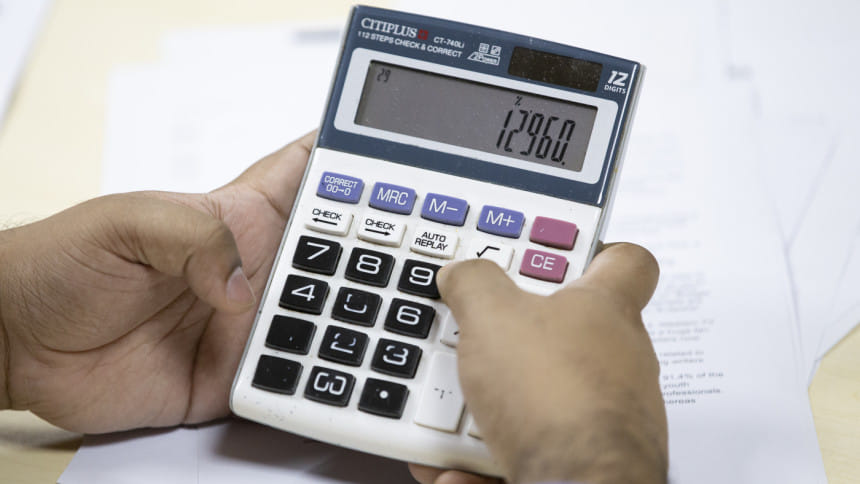I filed my income tax return for the first time: Here's how I did it

When I was told I had to file my income tax return this year, I was clueless to the point that I didn't even know where to go for help. I'm sure, a lot of young professionals entering the workplace for the first time might have been in a similar position.
At first, it seems pretty straightforward: You need to pay a portion of your income to the government. But the question now is, how much do you pay? How do you go about calculating this? And, where and how do you finally pay this amount? At least, these are the initial questions I had. So, while I was filing my very first income tax return, I decided to fully understand the whole process instead of blindly relying on someone. Here's a scoop on what I've learnt.
Now, income tax is something you pay at the end of every fiscal year and your taxable income will be calculated based on your income of that fiscal year. Usually, the time for submission of tax returns starts on July 1 with the deadline for submissions extending to November 30. Sometimes, an extension is provided, this year, it has been extended to the end of December. Before we get on to calculating how you will pay, the first thing to figure out is whether you are eligible to file for returns.
According to the Finance Act, for the fiscal year 2021-22, if your annual income is above BDT 3 lakh, you are eligible to pay taxes. But this bracket can change. For example, for women and people aged 65 years and above, the annual income has to be more than BDT 3.5 lakh. For persons with disabilities, the annual income has to be more than BDT 4.5 lakh. Therefore, the first course of action would be to figure out your eligibility criteria.
Once you have done that, it's time to bring out the old calculator. For most young professionals, with a single source of income, the tax return form will be a simple three-page form that can be downloaded from the National Board of Revenue (NBR) website. Most companies will email a "pay slip" with a breakdown of the salary. This breakdown would be needed to calculate the total taxable income you have since there are various tax exemptions on different aspects of the salary. For example, for house rent, there is an exemption of BDT 25,000 or 50 per cent of the basic salary (whichever is lower). After calculating all the exemptions, what you are left with is your total taxable income. The tax rate increases on a slab-wise basis and therefore, the tax rate applicable to you would depend on where your taxable income falls in the range. The slab-wise tax rate along with the tax exemptions can be found on the NBR website and it is helpful to check out the website to make sure you have all the updated information.
The tax calculation is the only slightly complicated aspect of tax filing because once you are done with that and you have filled up the form, all you have to do is submit the form (and pay taxes if applicable). This can be done online through the NBR website (e-return) or, for fans of the old-school way, you can walk up to your tax circle (information about your tax circle will be included in your TIN certificate) and submit the forms yourself. Along with the return form, you would need to submit copies of a few more crucial documents such as your TIN certificate, salary and income statement, and any personal or family expenditure information that may be necessary.
If your tax calculation came up as zero return, you can simply submit all the necessary documents and you'll become a tax-paying citizen of the country. If there is tax payable, the payable amount can be deposited by pay order, challan treasury, or online via the NBR website. After which you will submit all the necessary documents with a copy of the return form.

There you go. You just filed your first income tax return.
Now, the first time you calculate your total taxable income, the calculated amount might come out larger than anticipated and this is when a tax rebate comes in. A tax rebate is essentially a legal refund on your total taxable income that you receive for investing in the right places. These investments can be made in national savings certificates, life insurance premiums, treasury bonds, deposit pension schemes, etc. I invested in a DPS because that seemed like the best option for me. It's best to do thorough research on these investment schemes to figure out which scheme would give you the best returns as well as the maximum rebate.
Since the calculation of the total taxable income itself can be confusing the first time around, it's best to get an experienced person involved because making a calculation mistake here might be considered a crime. Or, you can take help from various online tax calculators such as iCalculator. There are also various websites, such as Credyt, with helpful resources that helped me out while I was trying to wrap my head around the whole process.
This whole ordeal can seem daunting for any first-timers and rightly so since even through years of schooling, most people are left out of learning about this crucial aspect of any future job-holder. Rezina Mahmud, an Advocate at the Bangladesh Supreme Court, spoke about filing income tax returns for young people, most of whom, according to her, have little to no idea about the whole process and usually don't know where to even begin. But what's surprising is that it's not just the youth who are in the dark, "Although the youth are generally more clueless about the process, a lot of older people also have trouble comprehending what they have to do."
This sheds light on a huge gap in understanding present in the whole population.
Hopefully, in the future, students of all backgrounds (not just business and accounting students) will have classes in schools giving them a run-down on this whole process and you won't have to rely on an amateur like me.
Tasnim Odrika has only one personality trait and that is cats. Share ideas for new personality traits with her at [email protected]

 For all latest news, follow The Daily Star's Google News channel.
For all latest news, follow The Daily Star's Google News channel. 





Comments